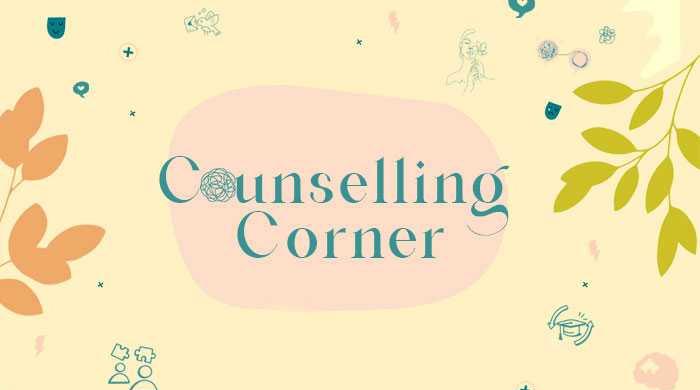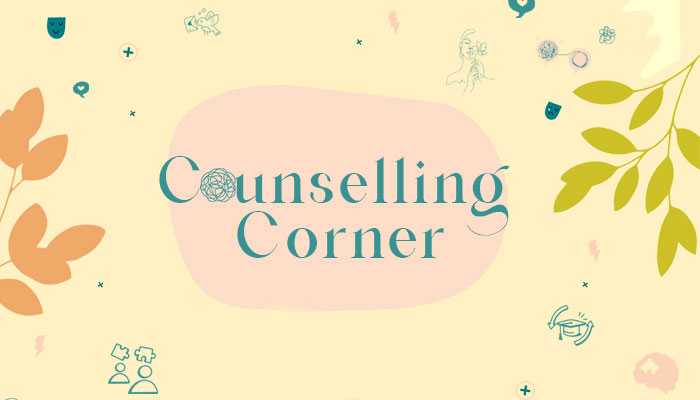Dear Haya,
I wanted your guidance on dealing with the lack of emotions after a break-up. I have experienced a break-up after an extremely toxic relationship of one and a half years. It took me a while to get rid of the feelings I had towards that person but after the break-up I am left emotionless.
I don’t feel any emotions such as even those towards my family, friends and in my professional circle. I find myself drowned in a sense of emptiness. The post-break up situation has left me numb affecting my interactions with everyone in my life.
I’m really concerned about how this emotional void will impact my well-being. How should I deal with this hollow feeling and regain balance in my life. Please advice.
— A heartbroken girl

Dear heartbroken girl,
Thank you for reaching out and sharing your feelings. It takes a lot of courage to acknowledge and express what you’re going through, especially after such a difficult experience. What you’re describing —feeling emotionally numb and disconnected after a toxic relationship — is not uncommon, but it can be deeply unsettling.
When we go through a breakup, especially from a toxic relationship, it’s normal to feel a range of emotions, including sadness, anger, and confusion. However, the numbness you’re experiencing is your mind’s way of protecting itself. I hear you say it took you a while to get rid of your feelings towards that person, but it doesn’t necessarily mean you have processed them. After enduring a prolonged period of emotional stress, your brain may shut down its emotional responses as a coping mechanism and the trauma gets stored in your body.
It sounds like to me that your nervous system may be in a perpetual state of freeze. “Freeze” is one of the body’s natural responses to perceived threats or overwhelming situations. This state is part of the “fight-flight-freeze” response, which is the body’s automatic reaction to danger.
It is a response that causes the body to become immobile or feel paralysed. You might feel stuck, unable to move or act, even though you’re fully aware of your surroundings. You might experience a sense of emotional detachment or numbness. This is the body’s way of protecting itself from emotional pain or trauma.
Here are some steps you might consider to start regaining emotional balance:
1. Allow yourself to feel: Sometimes, in an effort to avoid pain, we suppress all emotions. It’s important to create a safe space, either alone or with someone you trust, to allow yourself to feel whatever emotions might arise. Journaling, meditating, or simply sitting with your feelings can be helpful.
2. Self-compassion: Treat yourself with kindness during this time. Understand that healing is a process and it’s okay to feel what you’re feeling — or not feeling. You’ve been through a lot, and it’s important to be gentle with yourself.
3. Reconnection: Begin reconnecting with small, pleasurable activities or people that you used to enjoy. This can help you slowly rebuild connections with your emotions. It might not feel the same as it used to at first, but give yourself time.
4. Slow, gentle, mindful movements: Engaging in mindfulness practices, such as deep breathing exercises, yoga, or meditation, can help you reconnect with your body and emotions. These practices encourage you to be present in the moment, which can gradually bring back your emotional responses.
5. Grounding techniques: These involve reconnecting with the present moment through sensory experiences, like focusing on your breath, feeling the ground beneath you, or touching an object with texture.
6. Professional support: Sometimes, the emotional numbness you’re experiencing can be a sign of deeper issues like depression or trauma. Speaking with a therapist who specialises in relationships or trauma could be incredibly beneficial. They can provide you with tools to process your emotions and support you through this healing journey.
7. Patience: Healing from a toxic relationship is a process that takes time. It’s okay to take small steps. Recognise that regaining emotional balance won’t happen overnight, and it’s okay to progress at your own pace.
Remember, you don’t have to go through this alone. Lean on your support system, whether it’s friends, family, or a professional, as you navigate this challenging time. You’re taking important steps by acknowledging your feelings and seeking guidance. With time and support, you’ll find your way back to feeling whole again.
— Haya

Haya Malik is a psychotherapist, Neuro-Linguistic Programming (NLP) practitioner, corporate well-being strategist and trainer with expertise in creating organisational cultures focused on well-being and raising awareness around mental health.
Send her your questions to [email protected]
Note: The advice and opinions above are those of the author and specific to the query. We strongly recommend our readers consult relevant experts or professionals for personalised advice and solutions. The author and Geo.tv do not assume any responsibility for the consequences of actions taken based on the information provided herein. All published pieces are subject to editing to enhance grammar and clarity.


